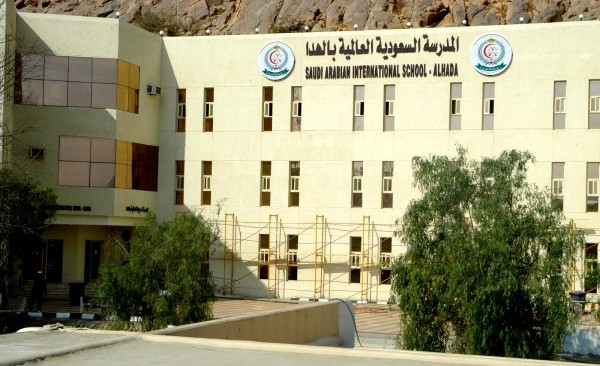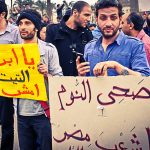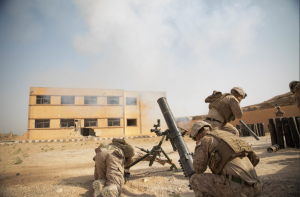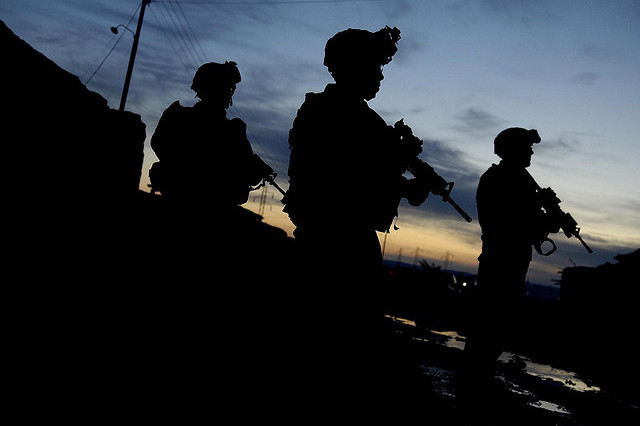by Thomas W. Lippman
Riyadh, Saudi Arabia—An anonymous posting on an extremist website has exposed a new area of concern about the security of Americans and other westerners throughout the Middle East—their children’s schools. Diplomatic and military installations have been known extremist targets for years, and have been fortified and reinforced to the point of impenetrability. But the schools? How can they be protected?
Egypt recently announced the arrest of a man identified as Alsayed Abu Saree, who was accused of responsibility for an online posting that called for “attacks targeting government and foreign interests… including against foreign teachers at American and international schools.” The Egyptian authorities said that Saree, 60, holds dual Egyptian and American citizenship and has been certified as a teacher in American schools around the world for 27 years.
US embassies throughout the region posted a security notice earlier this month informing citizens that “A recent anonymous posting on a Jihadist website encouraged attacks against American and other international schools in the Middle East, including Western teachers employed at these schools.” That message referenced schools in the localities of Jeddah (Saudi Arabia) and Ma’adi (Egypt) as examples, and described these two cities as locations with “high concentrations of potential targets.” The notice said that no specific threat has been identified, but added that American diplomatic missions are “working with local schools identified with the United States to review their security posture.”
Britain and Australia issued similar notices. The Australian statement said the web posting “specifically mentioned two schools in Jeddah, Saudi Arabia—the American International School and Advanced Generations School—and the suburb of Ma’adi, in Cairo, Egypt, where a number of teachers at international schools live.”
This episode opens public discussion of a topic that foreign residents in this part of the world have avoided talking about because nobody wanted to plant ideas in the minds of potential attackers. My daughters attended an international school in Cairo for three years and we never heard any discussion of the horrifying possibility that they might be targets. A Jewish school in France was attacked in 2012, but schools in the Middle East have generally not been targeted.
According to the Australian security warning, “The website post noted there were international schools in Saudi Arabia, the UAE, Qatar, Egypt, Jordan, Turkey, Bahrain, Oman, Kuwait, Sudan, Tunisia, Nigeria, Morocco, Malaysia, India, Bangladesh and Indonesia.” Wikipedia lists dozens of “notable international schools” worldwide, in countries as safe as Finland and as volatile as Yemen. The list includes 15 schools in Saudi Arabia, six in Egypt, six in Kuwait, two in Jordan.
American schools such as Cairo American College, in the Ma’adi suburb of Cairo, may be operated by religious groups, by independent organizations, or by the Defense Department. In Saudi Arabia, private schools run by profit-making businesses have proliferated over the past decade, but these cater mostly to the kingdom’s extensive South Asian population. Advanced Generations, the Jeddah school cited by the Australians, is operated by a private Saudi corporation.
What many of them have in common is that they are highly visible, they operate in fixed locations, and they have known, consistent schedules, and easily identifiable transportation routes. Many have playing fields and other recreational facilities where children run around in the open. Some fly the American flag.
These facilities are difficult if not impossible to fortify or seal off. Local citizens—staff, maintenance workers, suppliers—are often on campus. Cairo American College, one of the best known schools, says on its web site that “Regular access by Cairo residents to use the campus is not permitted. All guests must be authorized prior to accessing campus.” Potential attackers cannot be expected to seek authorization to enter or to turn away quietly if denied.
The schools seem like obvious potential targets for extremists prepared to abandon all norms of human community in pursuit of their objectives, but until now they have not been, for reasons that no one seems to know and few wanted to find out. The 1998 bomb attack on the US embassy in Tanzania was so powerful it might have injured children in a school across the street if the school had been in session that day, but the school itself was not the target.
Specialists in jihadist doctrine say that there is nothing in the ideological literature that calls specifically for targeting schools, but that doing so would be in keeping with their overall objective of striking foreign institutions of any kind. It is possible that jihadist groups have refrained from attacking schools because the fallout against them would outweigh any possible gain.
Malcolm Kerr, president of the American University in Beirut, was assassinated outside his office on the campus in 1984. The killers were never identified, but were widely believed to have been associated with Hezbollah, the powerful Iran-sponsored militia organization. His daughter, Susan Kerr Van de Ven, wrote in a memoir that she had no doubt that the killers’ objective was the “violent elimination of Westerners from Lebanese soil.” She noted that at the time there had been catastrophic attacks on many US installations in the region—Khobar Towers in Saudi Arabia, the US Marine Barracks in Beirut, the USS Cole in Yemen—but except for her father’s death there had never been an attack on an American school.
After the attack on the Jewish school in France, an organization called Christian Emergency Network posted an article titled “Schools as Soft Targets,” which said the incident was “a reminder to all secular and religious communities alike that our schools remain ‘soft targets’ for those who are aligned with Jihadist ideology and violent extremism.”
The article contained a warning from an unidentified “national faith leader,” who said that “This violent shooting attack against a Jewish school in France, while it may seem far from the U.S., by an apparent extremist aligned with Jihadist ideology, particularly one that directly targeted children, demonstrates a dramatic and violent shift in the threat realities faced by all faiths as ‘soft targets.’ And, while this incident was local, allegedly committed by a French national, the threat is not constrained by geographic boundaries. Individuals and groups loosely affiliated or ideologically aligned with radical, extremist ideologies presents a global threat and challenge and one that has the potential to impact our communities worldwide.”
Now it apparently threatens to do so in the Arab countries.






The recent attack by Islamist extremists in Nigeria,suggests that these people regard schools that offer “Western” education are an easy target. Such attacks could well discourage parents from sending their children to these schools and choose “Islamic” education as a safer option.
Deeply shocking, but here in Europe, we get some pretty disturbing news about school killings in the USA and I wouldn’t consider it safe to have my children educated there either.
Planting the seeds. How convenient, this article points up that such thinking exists, giving it far more exposure then the original posting. Does anyone bother to ask why the U.S. is targeted, besides being the peace loving nation it purports to be? I presume that those making the decisions to invade/post U.S.military units everywhere it can, also consider any American child as being collateral damage, if and when it happens? Is this where the next shocking attack on the beliefs of American invincibility, the one that will propel the country to increase its military spending on the future backs of the children who grow up to become taxpayers? Paranoid thinking? With all the noise being made today concerning how the military spending needs to be increased to fund all the bells and whistles now and in the future, but no clear cut explanation on how to fund it except to give the donors who corrupt congress, more tax cuts, feeds the very same radical peoples P.R. against the U.S., except the congress doesn’t have the common sense to see beyond their quest for more/greed of the $$$$.
So far, most American pupils and students face a far greater risk of death and injury from home-grown gun “nuts” inside the USA, so let’s keep some perspective here.
More fallout from the Iraq invasion of 2003 which was untertaken under false pretenses. Filed under #what do you expect?
.I want to break it to you gently, but those of us in the Foreign Service have lived with this threat for many years. The potential for attacks on schools, seizures of school busses and the holding of the children for political pressure or ransom has been around for year. I was personally involved in two countries (both prior to Bush 43). As long as it was Foreign Service personnel and families, no one in the Washington bureaucracy was particularly concerned. Even today, US diplomatic personnel are abandoned and left to die to avoid any political problem for the President. After all, it was some California filmmaker’s fault not terrorism. And, as The Secrertary of State said, what difference does it make, they are dead. Maybe when it is bunch of American kids, our dear leaders will figure it out. (ronmac, I am sure you will blame it on Bush! But maybe if it is your kid you will cut the political crap.)